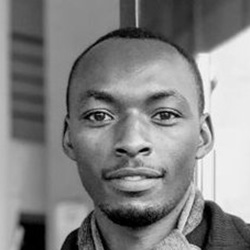

Protestors blocked roads in eastern DR Congo cities of Goma and Beni – before police intervened – on Saturday, January 20, while in the capital, Kinshasa, President-elect Felix Tshisekedi was getting ready to being sworn in for a second five-year term.
First sworn in as president in January 2019, after controversially defeating Martin Fayulu, Tshisekedi initially came to power promising to improve living conditions in the country, which boasts mineral riches but has a largely impoverished population of 100 million, and end the decades-long violence in the east, but has not kept those promises.
ALSO READ: 2023 leaves eastern DR Congo as unstable as ever
Nonetheless, this time around, he campaigned strongly on his first-term achievements such as free primary medication, asking for another mandate to "consolidate” the progress.
"We want a more united, stronger and prosperous Congo,” Tshisekedi, 60, said during the inauguration ceremony in which he swore to "defend the constitution and the laws of the Republic” and maintain its territorial independence and integrity.
Opposition candidates who described the poll process as a sham earlier called for nationwide protest to show their dissatisfaction with the results of December 20 controversial election. Tshisekedi was announced, on December 31, as the winner of the election which observers and opposition candidates said were marred by irregularities and fraud. He got 73 per cent of the votes, according to the electoral commission (CENI), followed by Moise Katumbi, who got 18 per cent, and Martin Fayulu, who got five per cent.
Later, on January 5, three ministers and four governors were among 82 candidates disqualified from the legislative, provincial and local elections by the National Independent Electoral Commission (CENI), because of fraud and violence. But CENI’s announcement did not address the chaotic presidential election that saw Tshisekedi re-elected.
ALSO READ: DR Congo opposition politician Moïse Katumbi blocked from leaving home
In a joint news conference earlier, on Thursday, Katumbi and Fayulu, who have previously called for cancellation of the results announced by CENI, urged the Congolese public to take to the streets on Tshisekedi’s inauguration day.
People in Masisi, Rutshuru and Kwamouth territories in eastern DR Congo did not go to the polls.
The Catholic Church’s National Episcopal Conference of Congo (CENCO), which deployed an observer mission, said the scale of irregularities and lack of transparency in the December elections amounted to "an electoral disaster.”
ALSO READ: DR Congo blocks EAC electoral observers
"These elections were characterized, in general, by fraud, large-scale corruption, vandalism of electoral materials, incitement to violence,” the CENCO said in a statement on Thursday.
"These numerous irregularities observed, the incidents noted and the fraud declared seriously affected the elections and undermined the confidence of voters.”
The CENCO urged the Congolese government to discourage xenophobic and tribalistic speeches which plagued the campaign.


